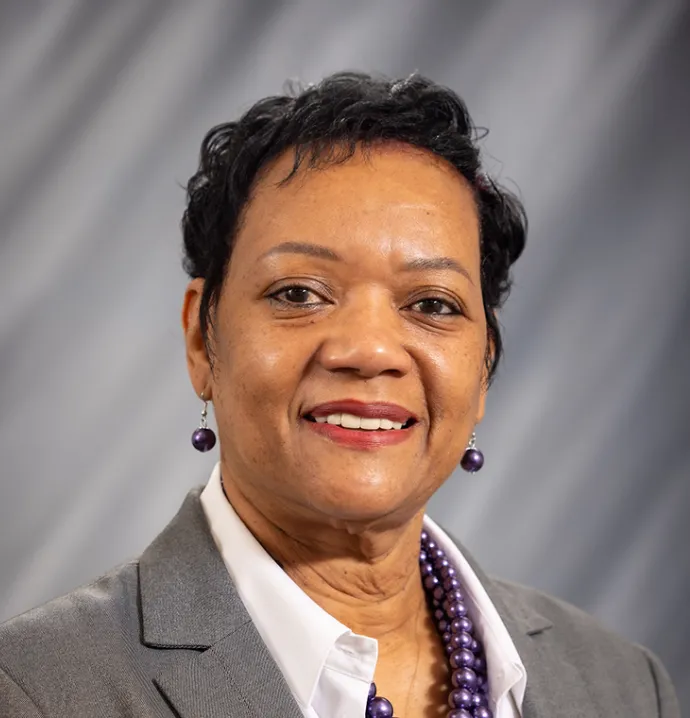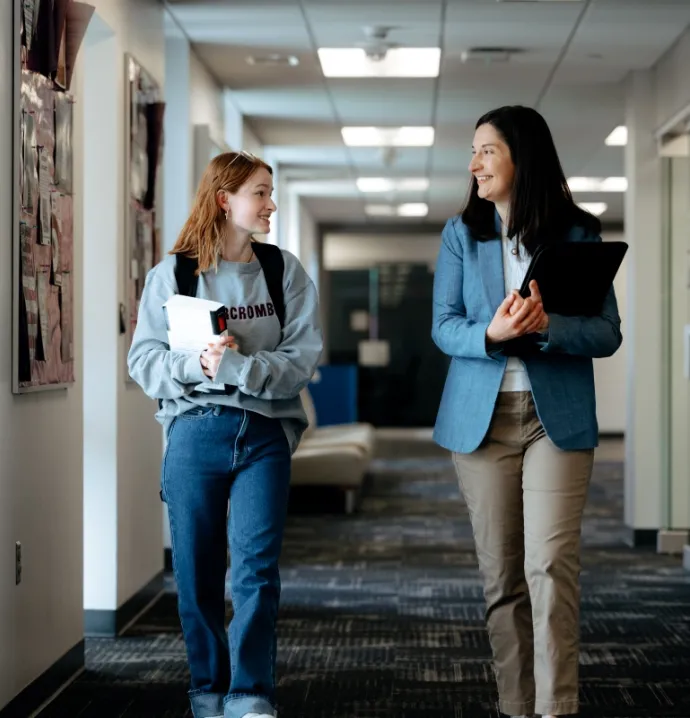UNI senior tackles educational and racial disparities in national award-winning essay
UNI senior tackles educational and racial disparities in national award-winning essay
Growing up in Khartoum, the capital city of Sudan, Alladin Dafalla was constantly reminded of the gap between the wealth of the city and poverty of the southern towns in the grip of war. Witnessing these disparities inspired him to undertake a career in public service and became the basis for an essay that recently won a national award.
When his family moved to the Midwest in 2013 in pursuit of better educational opportunities for Dafalla, now a senior at the University of Northern Iowa, and his older sister, he was surprised to see similar issues in the United States.
These experiences came together in an essay that recently won a national award. In it, Dafalla argued that, because many school districts are funded through property taxes, comparatively low homeownership and high poverty rates in Black neighborhoods were driving down investment in local schools and increasing the education gap relative to more affluent areas.
“Until this system of property-tax-funded schools is abolished or completely overhauled so that low-income children are entitled to the same education their rich counterparts are, the cycle of poverty will continue to churn,” he wrote.
A close relationship with political science department head Scott Peters helped Dafalla construct his essay, and his time at UNI has forged his career ambitions plans to attend graduate school for political science and then pursue a career in the United Nations as a diplomat.
For Dafalla, the topic of his essay was all too familiar.
“If you compare schools in the capital city to other, more rural areas of Sudan, there’s a huge disparity in funding for education resources,” Dafalla said. “The scary thing is that, while Sudan is still a developing country, the United States has the resources and the ability to solve these problems, but they’re not being addressed.”
Dafalla and his family initially moved to the United States in 2010 after they won a lottery to obtain a visa. After arriving in Philadelphia, they returned to Sudan after only a few weeks to care for a sick family member. They settled in Dubuque in 2013, when Dafalla was 13. The desire to continue to receive the best education available led Alladin to visit UNI, where he fell in love with the political science department .
As a political science major, Alladin received a weekly email from department head Scott Peters with information about upcoming opportunities for students. Dafalla discovered the Andrew Brimmer Undergraduate Essay Prize through one such email.
The Andrew Brimmer Undergraduate Essay Prize is awarded each year to a student pursuing a degree in economics, political science, public policy, or a related field in honor of Dr. Andrew Brimmer. Dr. Brimmer was the first Black member of the Board of Governors of the Federal Reserve Board. The essay must focus on a topic related to the economic well-being of Black Americans.
Dafalla was intrigued. He decided to enter the competition.
“My first thought was that I wanted to write about the educational system like differences based on property taxation. If you live in a certain part of town, you're going to have less access to resources like education or technology than if you lived somewhere else,” Dafalla said. “I was originally going to focus only on the educational system, but then I decided to take a step back and focus on the whole housing system.”
The essay had to include charts and graphs to back up the student’s research. It was a long process of gathering information and writing it all out so it would convey all the information while still being under the 750-word maximum. It was due the last weekend of September, and Dafalla was informed in mid-November by department head Scott Peters that he had been selected as the 2020 winner.
“Alladin is eager to learn and seeks out opportunities to build on his work in the classroom. All of us within the department of political science hold him in very high regard, and we're very proud of his accomplishments,” Peters said.
Being able to develop personal relationships with professors, like he did through the process of writing his essay, is what convinced Dafalla to choose UNI. Alladin initially entered as a biology major before an assignment for his Cornerstone course exposed him to a completely different track.
Cornerstone courses are designed to help first-year students get acclimated to campus life by introducing them to different resources and opportunities. Early in the semester, Dafalla’s professor, Nicole Johnson, encouraged students to join an on-campus student organization. After attending a meeting of their chosen organization, they had to write a paper about it.
On a whim, Dafalla selected Model United Nations.
“One of my friends had mentioned Model United Nations, so I went to the meeting just to have something to write my paper about. I didn’t expect to really enjoy it,” Dafalla said. “The environment was so welcoming, I just absolutely loved the culture of the department. I wound up changing my major to political science because of that cornerstone assignment.”
Dafalla has certainly made the most of his time on campus at UNI. In addition to his involvement in Model United Nations, he was a senator in the Northern Iowa Student Government representing the College of Social and Behavioral Sciences. He helped first-year students transition to campus life as a Jump Start Summer Orientation Staff Member and as a member of Student Admissions Ambassadors.




